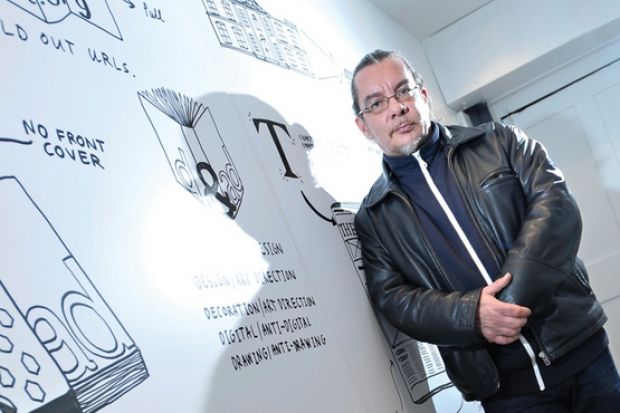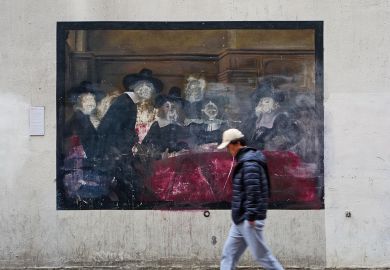Source: Getty
Industrial relation: Neville Brody would like business to invest in education
One of the UK’s leading graphic designers has called on higher education institutions teaching creative skills to “have the guts to turn inside-out the way we teach”, to “get industry involved and investing directly in education” and to use the current fees regime as “an opportunity to modernise our educational system”.
Neville Brody, a dean at the Royal College of Art and current president of D&AD, which represents the design and advertising communities, made the comments at A Future for Creative Education? on 21 May, a discussion in London organised by the design charity.
Introducing the event, Guardian columnist Jonathan Freedland asked: “Is creative education becoming increasingly the preserve of the rich? Are creative courses feeling the squeeze, not only financially but in terms of lack of respect?”
One member of the panel, the film producer and educator Lord Puttnam, warned that creative education at every level needed to draw on the latest technologies if it was to develop the essential skills that the country needed so urgently.
“The military only abandoned the cavalry and adopted the machine gun,” he reminded the audience, “when they started being destroyed on the battlefield.”
A recent visit to the University of Pennsylvania, with its multibillion- dollar endowment, had also made Lord Puttnam realise that “they can bring in any student they want whenever they want. That’s our competition.”
Dave Birss, founder of Additive, a company set up to provide on-going training for those working in the creative industries, noted that: “As a creative person, I want to be doing things no one has ever done before. I want to be pissing in the virgin snow. Advertising courses in universities are not providing the training that people need for positions in industry.”
Mr Brody, who became dean of the School of Communication at the RCA in 2011, told Times Higher Education before the event that he had accepted his role - his first within education - only weeks before the coalition came to power.
The introduction of a new tuition fees regime meant he “had to learn on the job, change-managing from something I didn’t understand to something I don’t know, and then take people with me”.
Mr Brody, who continues to run his own studios in London, Paris and Berlin, said he supported greater engagement between higher education and industry, telling companies that “if you want to guarantee the quality of graduate supply, you need to be involved in making that supply - which is the American model”.
He added, however, that “we need to manage that in a British way, setting clear criteria about what control industry has”.
Register to continue
Why register?
- Registration is free and only takes a moment
- Once registered, you can read 3 articles a month
- Sign up for our newsletter
Subscribe
Or subscribe for unlimited access to:
- Unlimited access to news, views, insights & reviews
- Digital editions
- Digital access to THE’s university and college rankings analysis
Already registered or a current subscriber? Login




